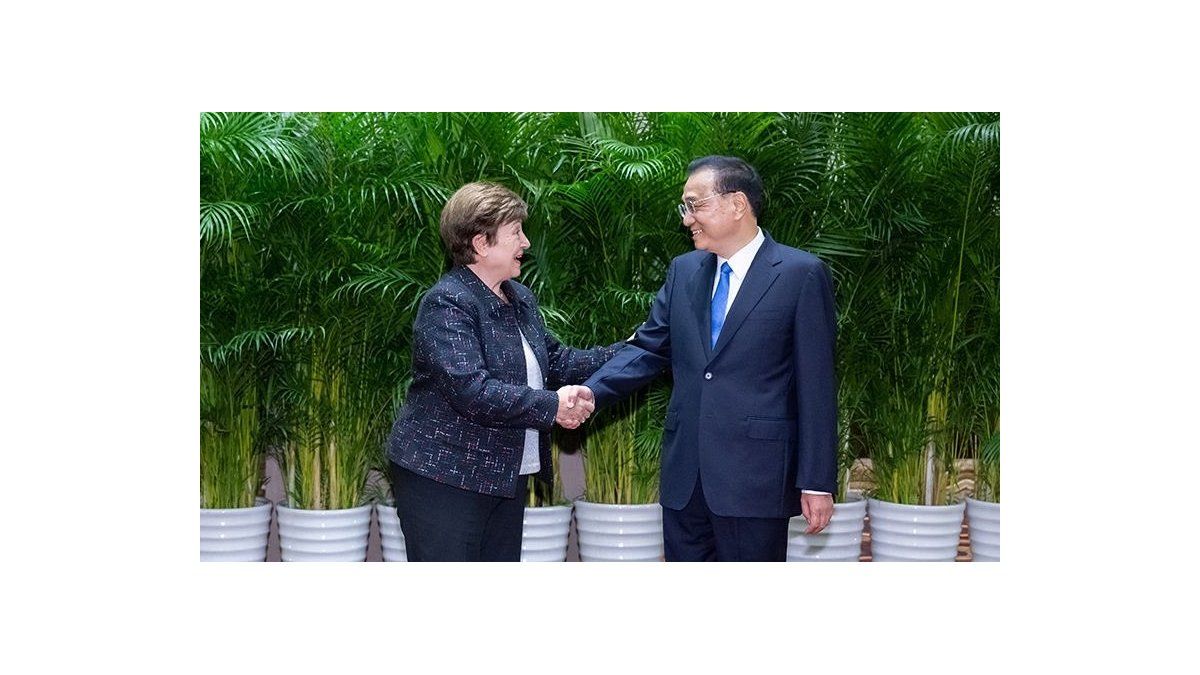Dependency theory postulates that underdevelopment is not innate to certain countries, but rather a consequence of the expansion of capitalism, which at a more advanced stage comes to be identified with the growth of transnational corporations. Another important contribution is that of Prebisch and his criticism of specialization in foreign trade that generates external and internal bottlenecks – others, besides the Chinese tale, add the idea that there is only one external restriction, they are left halfway through the problem.
However, we have a question: is China not looking for inputs for its industries? Yes, there are five Chinese investments in mining projects in Argentina. These cover the provinces of Jujuy, San Juan, Río Negro and Chubut and include gold, silver, copper, zinc, iron and lead minerals. We have a question: Who does the RIGI benefit? Only the US, EU, UK or Israel, etc.?
Arturo Jauretche had two appreciations to understand this context: one, “nIt’s not about changing collars, but about stopping being a dog.”, taking off the collar is not just throwing it on the floor, but it is necessary to achieve a consensus as a community and awareness to understand the path to take after that, as happened in 2006 when paying the IMF; two, “If the gringo who buys from us is bad, the Creole who sells to us is worse.”, the problem here is not China or the US, the Chinese government plans and develops its strategy based on its national interests, no one can object to that.
Our own ideas, Structuralism, Dependency, CEPAL, allow us to have theoretical tools to analyze whether there is a new economic center in the 21st century that may not be like that of the United States or the British or perhaps there is competition between different economic centers. What will we do in the periphery?
The Chinese currency is part of the IMF’s basket of currencies, and has a seat in the organization. Although the US has veto power. Another question arises: What is the purpose of an organization like the IMF for the countries of the region? It seems that many economists do not go near the history books. There were 21 agreements with Argentina. Was any of them successful? No.
However, the organization represents the interests of companies and banks in central countries. A historical fact is that after the 1973 crisis, known as the oil crisis, three years later, a group of intellectuals coordinated by Jan Tinbergen met to think about the future of industrial countries and the third world.
One problem that emerged from this meeting was that: “The Third World can strengthen its position of power by controlling its scarce natural resources. The effectiveness of this strategy has been demonstrated in part by the OPEC group. The prosperity of the industrialized countries depends on a regular supply of raw materials from the Third World. For example, of the three basic raw materials required by a modern industrial economy, the United States in 1950 depended on imports for more than half of its stock of only four of these raw materials. By 1973 the list had grown to nine.
From this fact we can configure a point of coincidence between the interests of the local elites with the international elites, to specify a new pact, called, Neocolonial The aim of this is to maintain the historical productive structure: foreign currency is provided by cereals and oilseeds, mining, food and beverages, and meat. External demand defines the internal productive structure and provides, previously as a granary, now as a supermarket for the world.
The IMF and China are part of a bigger problem, because the gringo who buys or finances us is not bad, the local who sells us is worse, this local was Macri, Caputo, Sturzenegger, Bullrich when in 2018 they closed the agreement with the IMF for financing that only served minority sectors, who were able to accumulate dollars and keep them for us (Panama Papers, safe deposit box or in the mattress) and now Milei, Caputo, Scioli and Macri deepen the economic policies initiated in 2016-2019.
Now under the umbrella of the IMF, fiscal adjustment, tariffs, price freedom, reserve target and positive real rates, will the government of Milei and Macri be able to meet these goals? Because the IMF’s goals favor the central countries, deindustrializing the Argentine productive structure, defunding scientific development and leaving natural resources to be exploited by transnational companies. Financial dependence (Macri), commercial (China, USA, EU) and technological.
Revolutionary Christianity.
In the face of this bleak outlook, we must recall the words of Pope Francis: “If the poor people do not give up, if the people organize themselves, persevere in daily community building and at the same time fight against the structures of social injustice, sooner or later, things will change for the better.” In response to criticism from some Argentine middle classes, “when the Pope speaks, he speaks for everyone because the Church is for everyone, but he cannot avoid the centrality of the poor in the Gospel.” “And this is not communism, it is pure Gospel,” he stressed. “It is not the Pope, but Jesus, who puts them at the centre, in that place. It is a question of our faith and it cannot be negotiated. If you do not accept that, you are not a Christian.”“, he said.
President Milei recently again dismissed the notion of Social Justice, to which the Bishop of Rome defined social justice as an “expression created by the Church” and insisted on the three attributes of God: closeness, mercy and compassion. Along these lines, he specified that, if one wants to undertake action at a social level, these three attributes must be applied. “Social justice is inseparable from compassion,” continued Francis. Regarding the repression of our pensioners, the Vatican said: “Because they were rioters, communists, no, no, no, and the government stood firm and instead of paying for social justice, it paid for the pepper spray, it suited it. Keep that in mind, eh. We all have to lift each other up. We all have to do it.”.
How many millions did they receive in investments? Francisco reminded that the devil enters through the pockets -no matter the origin or the country-, but it must be made clear that of the investments that circulate around the world only 5% reach the South American continent. Not necessarily to Argentina, but to Brazil, Colombia, Chile or Peru.
The main mega investment, Petronas, is in doubt. “In contractual terms, if Petronas does not disburse this money by the end of the year, its participation in the LNG liquefaction project will collapse by its own weight. That is a fact. Will the 180 million dollars arrive by the end of the year? Wasn’t it 30 billion dollars? In fact there was never a signed binding contract, only letters of intent, According to Gandini (Eco Journal), it seems that one of the few countries that invests in Argentina is China.
We are facing a new colonial pact, before they were tales of the crown, now they are Chinese, and that is why what the bishop of Rome leaves us is important: “Let no one steal our historical memory and our sense of belonging to a people. We Argentines who have indigenous people, remember Roca. Material colonialism, ideological colonialism, cultural colonialism always go together, devouring the material wealth of the people. I think of some experiences in my country, where colonialism is called Lithium and so many people are exploited.“There are global interests, not universal ones.
Source: Ambito
I am Pierce Boyd, a driven and ambitious professional working in the news industry. I have been writing for 24 Hours Worlds for over five years, specializing in sports section coverage. During my tenure at the publication, I have built an impressive portfolio of articles that has earned me a reputation as an experienced journalist and content creator.




